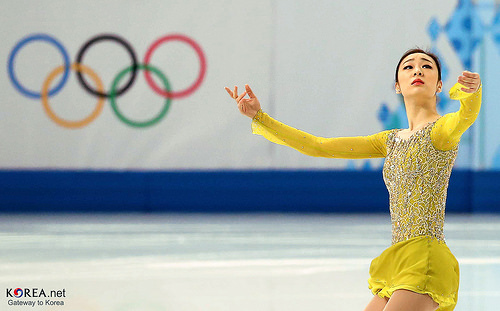
The Sochi Winter Olympics were a massive success for Russia; the nation ranked first with the greatest number of medals in the history of the Winter Olympics. However, there is a considerable controversy regarding Russia’s seemingly great achievement; not only have its athletes sniffed xenon, a drug that the Russian government actually “encouraged” the athletes to take in order to enhance their performance,but there also exists a roaring controversy regarding the extreme “home-team advantage” the Russians benefitted from. Although it has been a couple of months since the Sochi Winter Olympics ended, the issues related to this so-called advantage are still worth rumination.
“Home-team advantage” is a term that describes the upper hand that a host team or country is said to have over a visiting team as a result of playing in familiar facilities and in front of supportive fans. However, the Russian’s advantage at the Winter Olympics goes far beyond familiar ice rinks or an energetic home crowd– many are accusing Russia of pressuring and even bribing judges to score in favor of Russian athletes in certain events.
One of the most controversial instances of this was in women’s single figure skating, where17-year-old Russian skater Adelina Sotnikova’s surprise victory over favorite Yuna Kim left many experts and fans shaking their heads. Here are the facts: 4 of 9 judges were Russians.One judge was disciplined for a biased judgment at a previous winter Olympics. Sotnikova’s overall score increased by more than 20 points in only 3 months thanks to the excessive GOE (additional points) that judges granted her. Although the International Skating Federation and Sotnikova herself have repeatedly tried to explain the legitimacy of her victory, the suspicions have only been amplifying.
Despite such a clearly visible bias in judging, many just accept the fact that inherent favoritism exists these sorts of competitions, conceding that they’re simply an inevitable drawback in any sports game. However, such an attitude is no better than that of the biased judges themselves; although home-team advantage is an inseparable part of sports events, it is justifiable only when home athletes benefit from playing in a more familiar space or having more supportive fans. Anything that exceeds these aspects of competition can only be said to be against the core ideals of sportsmanship, and thus many value fairness as the primary virtue of any sport. The issue of Russia’s “home-team advantage” was really a matter of fairness, and it’s shameful that such unwarranted injustice dominated the Sochi Games.
Though a difficult situation to remedy, bias in sports competitions can be recognized and tackled if the right action is taken. Audiences should first recognize biases in judgment and raise their voice against them with good reasoning and objectivity. Organizational and government attention is also needed to eliminate such partial judgments with large-scale petitions, investigations and reform programs. If we combine our efforts to prevent any biased judgment tainting the true spirit of a sporting event, we will not only be able to preserve sportsmanship but also prevent athletes from being robbed of what they deserve.
This article originally appeared in the May/June, 2014 issue of UNIT-E. It was written by Claire Jeong, a student at the Korean International School of Beijing.
About UNIT-E
UNIT-E was founded in the spring of 2010 with the aim of establishing a non-profit, student-run magazine for international students in Beijing. Staffed by current students from a range of international schools, the magazine provides an amalgam of cultural tidbits, fragments of Beijing student life, and a broad spectrum of unique perspectives from a diverse group of young adults.
Photo courtesy of Korea.net (Flickr)



